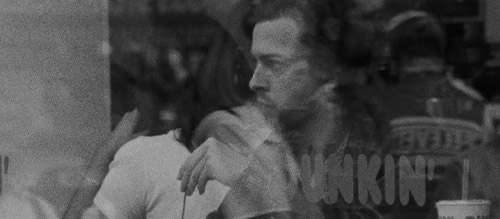Christopher Nolan Films Ranked
Christopher Nolan is arguably the most critically acclaimed filmmaker on the planet. The director of the likes of Inception and Dunkirk has reached audiences young and old, casual and committed, with his unique blend of spectacle and philosophy being imparted upon recognisable franchises like The Dark Knight Trilogy as well as original offerings of the thriller and blockbuster realm.
The filmmaker, of British and American heritage, has offered elements of filmmaking genius as wide ranging as Stanley Kubrick and Steven Spielberg, Ingmar Bergman and Akira Kurosawa, to develop an individualistic mix of old-school philosophies and modern sensibilities. He has made a name for himself as the only director in Hollywood who can guarantee a runaway financial success of the billion dollar category in the increasingly perilous waters of high-budget productions of original stories. In many ways, Nolan has become a franchise in of himself, a filmmaker so recognisable that he is given top billing in trailers and on posters, someone who has become as synonymous with cinema as John Ford, Martin Scorsese and Alfred Hitchcock.
With over two decades of filmmaking experience, Christopher Nolan is still relatively young when compared to other directors with similar success, and therefore each release remains important to the director establishing himself as an author of the screen, his ideological approach of individualism and thematic ruminations on time each still in their relative infancy even within his prolific and reputable output.
In this edition of Ranked, we at The Film Magazine are breaking down all of Christopher Nolan’s feature releases to rank the films of one of the world’s most recognisable directors from worst to best in terms of artistic merit, public perception and critical reception.
Follow @thefilmagazine on X (Twitter).
12. Following (1998)
Christopher Nolan’s debut feature Following (1998) is as identifiably Nolan as his most expensive and expansive work. It is shot on film stock, brought to life by a narrative taking place across three timelines, and is focused on assessing the role of man and his position in the world.
A feature debut made on a relatively shoestring budget was never going to make for the ultimate representation of the director’s vision for cinema, but Following (1998) does offer an intriguing first glimpse of a filmmaker on the precipice of a history-making career, this characteristically mind-altering, Tarkovsky and Bergman-inspired piece being an interesting and challenging start to a filmography that would go from strength to strength.
11. Tenet (2020)

Christopher Nolan’s often adventurous concepts reached their most opaque with Tenet (2020), the story of a secret agent sent through time to solve a crime and save the world. Starring John David Washington and Robert Pattinson, Tenet is as sharp-suited as your typical James Bond movie, only more adventurous in its thematic explorations and visual presentation.
Tenet is arguably the most arthouse of all of Nolan’s releases post-Following, bringing visual and theoretical concepts to the screen in a manner very few filmmakers have ever been allowed to do on such a high budget. Christopher Nolan offers fights in which one character is moving forward in time and the other is moving backwards, story twists that explore themes of destiny similar to those found in Interstellar, and continues to shape his catalogue of movies about men lost to worlds they don’t belong in.
Tenet was expected to unite audiences and critics in a celebration of the cinema experience after a tough year of closures, but was instead met with a divisive reaction. For all of Tenet’s achievements, and how bold it can be considered to be, this imaginative summer movie was ultimately a case of the humanity that bonds us to screen stories taking a backseat to the director’s lofty concepts, Tenet lacking the same humanity as better Nolan films.
Recommended for you: Christopher Nolan’s Cinematic Chores – Understanding ‘Tenet’


